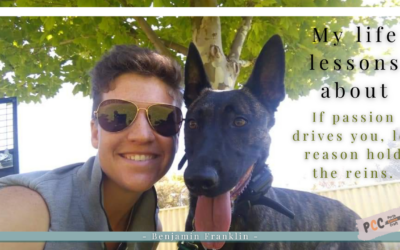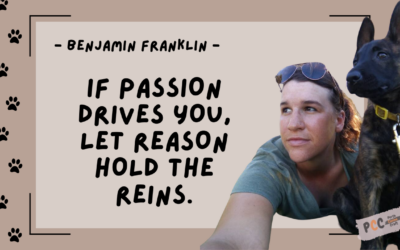Teaching Old Dogs New Tricks: Aligning Goals and Managing Stress
Yes, you can teach an old dog new tricks as long as the dog is physically and mentally capable of learning. The challenge arises when your goals differ from your dog’s. When a dog experiences distress (bad stress), it becomes difficult for them to learn. As a professional, I specialize in handling reactivity in dogs, which I define in line with Captain Jack Sparrow’s perspective:

Understanding Reactivity in Dogs
Reactive dogs often use the “best defence is a good offence” strategy. They may resort to maladaptive coping mechanisms, like the threat of violence, to handle distress. Dealing with a reactive dog can be challenging for the dog, its family, and sometimes the community.
Unfair Expectations: The Need for Education and Management
Helping a reactive dog becomes even more difficult when people place their pets in unfair situations and expect them to tolerate and enjoy it. For example, some people want their dogs to stop growling when children bother them while they’re sleeping or eating. In such cases, it’s essential to remember the idiom, “let sleeping dogs lie.”
Children should be educated about interacting with dogs. If they are too young to understand, it’s crucial to manage their interactions with pets. It’s rarely safe to leave a child alone with a dog, as both have limited impulse control, increasing the risk of accidents.
A Word of Caution
If you disagree with this perspective, it’s best not to contact me. I aim to create a safe, peaceful environment for dogs and children by promoting education and proper management.





0 Comments